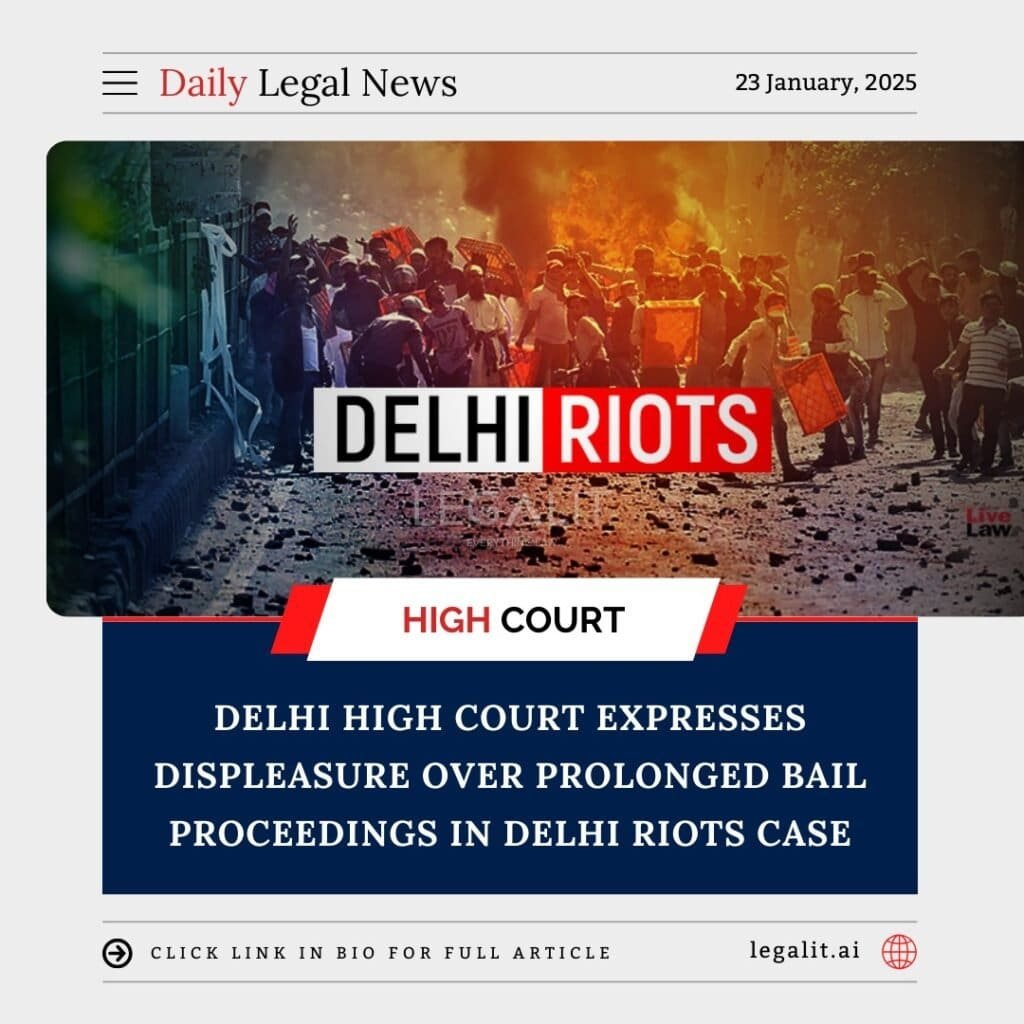
Background
The Delhi High Court, during a hearing on bail pleas in connection with the 2020 Delhi riots, expressed strong discontent over the prolonged nature of proceedings and unnecessary delays. The court’s remarks came as it reviewed the bail applications of several accused individuals, highlighting the procedural inefficiencies and excessive reliance on peripheral evidence by the prosecution.
The riots, which occurred in February 2020, resulted in widespread violence, loss of life, and property damage in Northeast Delhi. Numerous cases were registered, leading to multiple arrests. However, several accused individuals have remained incarcerated for extended periods without trial.
High Court’s Observations
- Prolonged Incarceration:
- The court noted that many accused had been in custody for significant periods without the conclusion of their trials.
- It emphasized that denying bail without substantial grounds violates the principle of personal liberty enshrined in the Constitution.
- Weak Evidence:
- The court criticized the prosecution for relying on vague and uncorroborated evidence, including witness statements that lacked specificity.
- It observed that such evidence does not justify prolonged detention, especially when trials are likely to take years to conclude.
- Burden on the Judiciary:
- The court lamented the unnecessary burden placed on the judiciary due to poorly prepared cases and lack of substantive arguments.
- It urged trial courts and investigative agencies to adhere to stricter standards while opposing bail pleas.
- Overreach by Investigating Agencies:
- The High Court expressed concern over the perception of investigative overreach in politically sensitive cases, urging the agencies to ensure fairness and impartiality.
Court’s Remarks
During the hearing, the bench remarked, “This has to end!” in response to the prosecution’s repeated attempts to delay bail decisions through procedural tactics. The court underscored that bail cannot be withheld indefinitely merely on the assumption of guilt.
Implications of the Judgment
- Reaffirming Liberty:
- The court’s observations reinforce the principle that bail is the rule, and jail is the exception, as emphasized by the Supreme Court in previous judgments.
- Need for Judicial Accountability:
- The case highlights the need for trial courts to exercise greater scrutiny in accepting chargesheets and remand applications.
- Systemic Reforms:
- The judgment underscores the necessity for systemic reforms in investigating and prosecuting riot cases, ensuring speedier trials and adherence to due process.
- Balancing Justice and Security:
- While protecting the rights of the accused, the court also stressed the importance of addressing the concerns of victims and society at large, emphasizing a balanced approach to justice.
Conclusion
The Delhi High Court’s sharp criticism reflects growing concerns about the misuse of judicial processes in high-profile cases. It serves as a reminder to the prosecution and judiciary to uphold the principles of justice, fairness, and expediency. The remarks underscore the need to streamline judicial proceedings, ensuring that neither the rights of the accused nor the interests of justice are compromised.